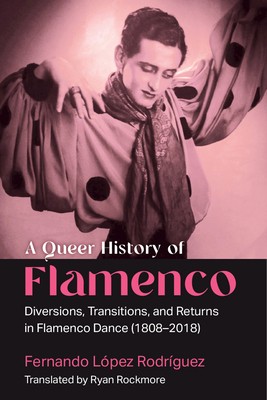
- We will send in 10–14 business days.
- Author: Fernando López RodrÃÂguez
- Publisher: University of Michigan Press
- ISBN-10: 047205712X
- ISBN-13: 9780472057122
- Format: 15.4 x 23 x 1.5 cm, minkšti viršeliai
- Language: English
- SAVE -10% with code: EXTRA
Reviews
Description
A Queer History of Flamenco offers a groundbreaking exploration of flamenco through the lenses of queer theory and cultural studies. Previous histories have provided a largely distorted image about why, where, and how people have done flamenco--as well as who has performed flamenco. Yet feminists, transvestites, butches, femmes, the Spanish Roma, disabled people, guiris, and "incomprehensible" artists have been determined to do things differently without giving up their flamenco status. In this skillful translation of his book Historia Queer del Flamenco, Fernando López RodrÃÂguez draws on diverse archival materials as well as his own lived experience and artistic practice, unearthing queer flamenco histories, voices, and perspectives that were previously unknown, avoided, or purposely hidden. Tracing flamenco's development from its birth up to the contemporary era, the book places flamenco within significant historical periods such as the Spanish Civil War, Franco's dictatorship, the transition to democracy, and the economic crisis of 2008, up to contemporary performances of the late 2010s. In taking a queer approach to History, the author abandons antiquated debates about purities and impurities; anecdotes about the lives of artists that are completely detached from their processes of creation; and myths about geniuses who seem to make art alone and completely detached from their collaborators and the historical, social, economic and artistic moment in which they lived. A Queer History of Flamenco is not only about the present and the queerness of people living, performing, or creating in it, but also about flamenco's past in which so many queer artists and practices and their lives have remained unearthed and unaddressed.EXTRA 10 % discount with code: EXTRA
The promotion ends in 22d.00:48:41
The discount code is valid when purchasing from 10 €. Discounts do not stack.
- Author: Fernando López RodrÃÂguez
- Publisher: University of Michigan Press
- ISBN-10: 047205712X
- ISBN-13: 9780472057122
- Format: 15.4 x 23 x 1.5 cm, minkšti viršeliai
- Language: English English


Reviews